The Jerusalem Cultural Forum, in collaboration with the College of Shari‘ah and Islamic Studies at the Applied Science Private University, held the Second Conference of the Diploma of Al-Quds Studies (Dr. Is’haaq al-Farhan Diploma) on 12/10/2024. The conference featured the participation of al-Zaytouna Centre’s General Manager, Prof. Dr. Mohsen Mohammad Saleh.
Held under the patronage of Jordan’s Minister of Education and Minister of Higher Education and Scientific Research, Prof. Dr. Azmi Mahaftha, the conference focused on the theme “Al-Aqsa’s Centrality and Occupied Reality.” The event saw the participation of 600 scholars, academics and experts interested in the issues surrounding Jerusalem and the al-Aqsa Mosque.
At the opening ceremony, Prof. Dr. Mohsen Saleh, head of the Academic Board for the Jerusalem Studies Diploma, delivered a speech in which he commended the remarkable efforts of the team behind the Dr. Is’haaq al-Farhan Diploma program and the high caliber of the students. He emphasized the significance of these commendable efforts in shaping a conscious and committed generation that stands against the Zionist project and advocates for Jerusalem and al-Aqsa Mosque.
Saleh emphasized the need to restore Jerusalem’s Islamic civilizational message in response to the Zionist project occupying Palestine. He described the Islamic civilizational message as broad, inclusive, and inherently human, capable of countering Israel’s isolationist, exclusionary mindset. According to Saleh, Israel’s approach embodies a closed, restrictive vision, which contrasts with the Islamic message of openness and cultural engagement.
In the main session titled “The Centrality of al-Aqsa Mosque to the Ummah and Its Role in Liberation and Revival,” Saleh presented a paper titled “Al-Aqsa Mosque in Light of the Events of October 7.” He emphasized the mosque’s pivotal role in the century-long struggle against the Israeli occupation. Saleh noted that many Intifadahs and revolutions have been named after Jerusalem, highlighting its symbolic significance as a source of inspiration and the heart of the Ummah’s resistance against the occupier.
He also spoke about the central role of Jerusalem and al-Aqsa Mosque as a unifying force for the Ummah, serving as both a symbol of its strength and a measure of its condition. Jerusalem elevates those who stand in its defense and diminishes those who neglect it. It is the compass that unites the Ummah in opposition to the Israeli enemy, and a barometer of the Ummah’s strength and weakness. When Jerusalem is strong and secure, it reflects the well-being of the Ummah; when it is weakened and Muslims fall behind, it signifies the occupation of the city.
In his speech, Saleh addressed the current situation in Jerusalem and the impact of Operation al-Aqsa Flood on al-Aqsa Mosque, as well as Israel’s response. He highlighted the strategic effects of the operation and the aggressive Israeli actions towards the mosque. He also noted Israel’s growing anxiety due to its ongoing war, which has only intensified the resistance from both the Palestinian people and the broader Ummah.
At the conclusion of the conference, Saleh presented the recommendations and findings.



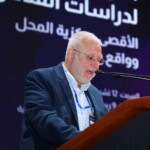
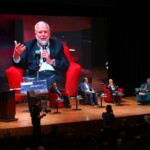
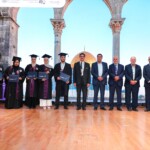
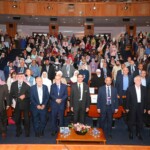
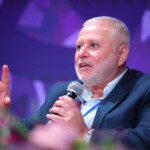
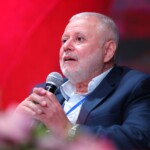

Leave A Comment